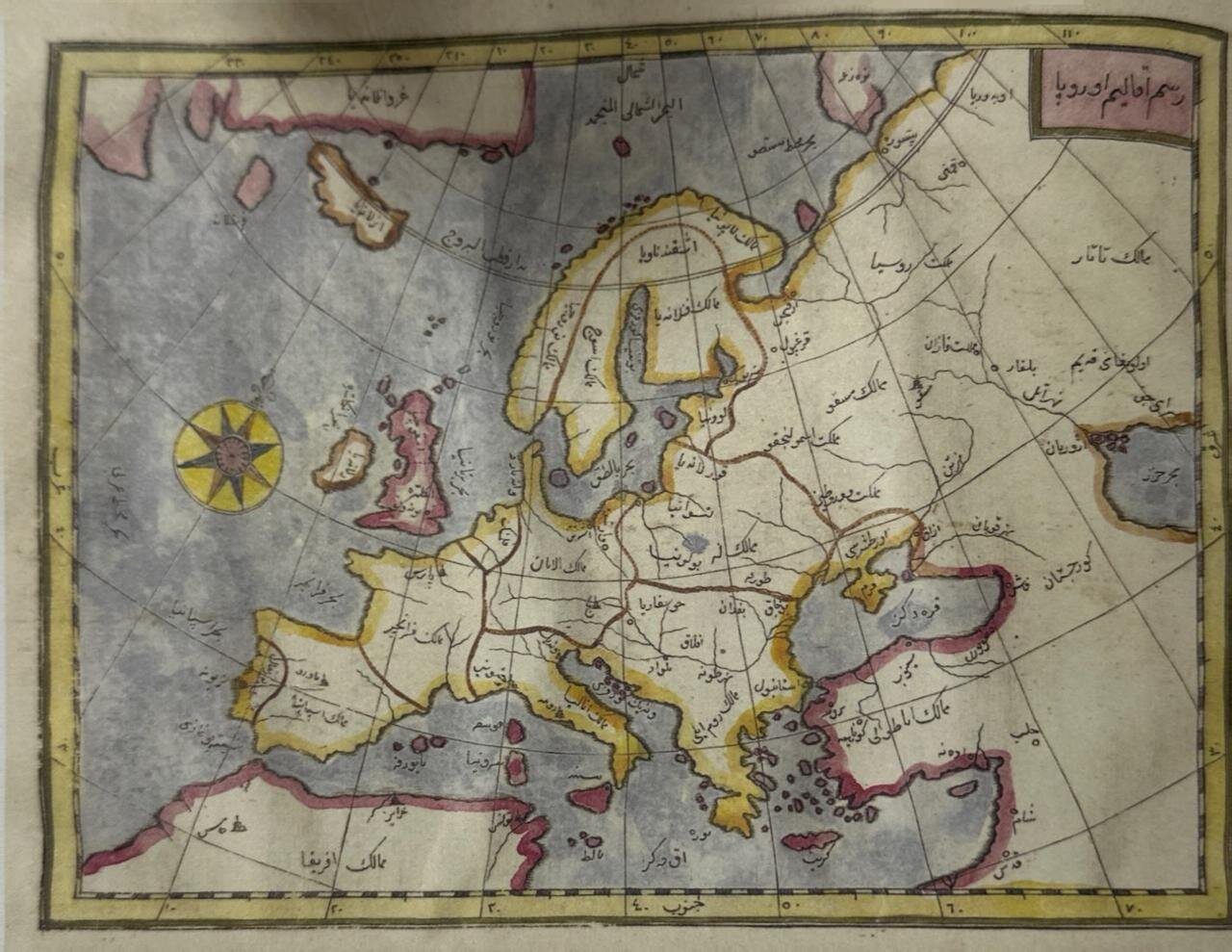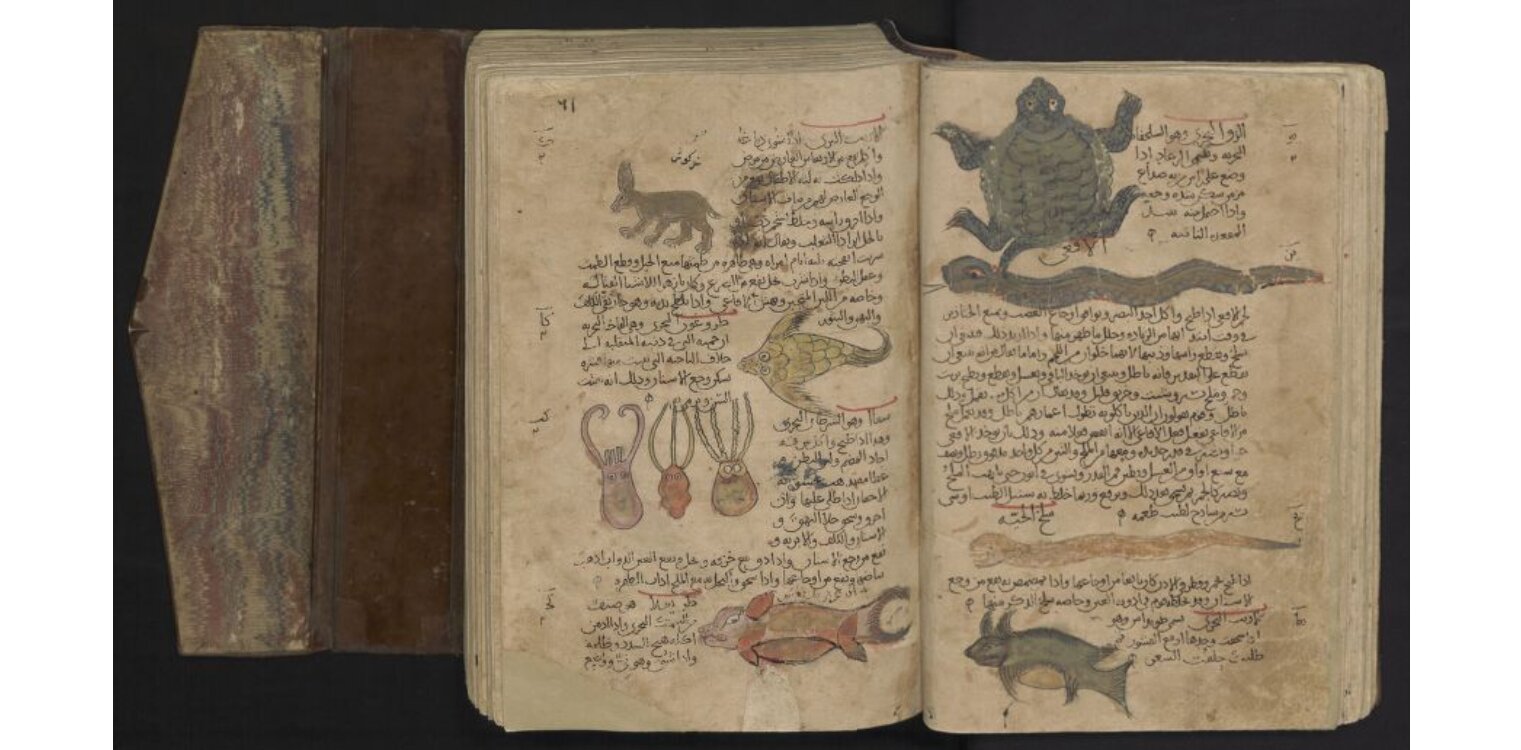When it comes to chronicling the past, it seems there are basically two ways discoveries are made: either they’re the result of years of painstaking, devoted work… or they’re accidentally found in a drawer somewhere after eons of collecting dust.
ADVERTISEMENT GO AD FREE
The new discovery of two scientific treatises by Apollonius, the ancient Greek mathematician known as the “Great Geometer”, falls firmly into the latter category. Brought to the University of Leiden in the 17th century as part of a wider collection of nearly 200 Arabic manuscripts, the books seem to have been kept under lock and key ever since – all while being considered irrevocably “lost” to history.
“The Conics of Apollonius (c. 200 BCE) was one of the most profound works of ancient Greek mathematics,” explains a new book from the University in which the two works are revealed. “The work deals with the theory of ellipses, parabolas, and hyperbolas – the curves which you can see if you shine a flashlight on a wall.”
It’s an epoch-defining work, serving as the first known introduction of these concepts to the world of math – but until now, only the first four of the eight total volumes were thought to have survived. That the two rediscovered installments – books five and seven – also made it to the present day is testament to that often-overlooked triumph of history, the Islamic Golden Age.

Hand-Colored Map of Europe in Katib Cele-bi, Kitab-i CiHAN-NUMA (The Cosmorama), Printed by Ibrahim Muteferrika, Istanbul, 1145 AH (1732 CE).
Image credit: Leiden University Libraries
“Arabic manuscripts in Western libraries like Leiden University Libraries serve as invaluable records of Islamic civilization’s intellectual achievements, especially in mathematics and geometry,” said Mostafa Zahri, University of Sharjah Professor of numerical analysis and mathematical modeling, in a statement on the discovery.
“Western institutions, besides Leiden University, namely the British Library, and the Bibliothèque Nationale de France, house thousands of Arabic, Persian, and Ottoman manuscripts containing rare geometric treatises,” he added. “These collections bridge historical and modern scholarships.”
Apollonius is far from the only ancient scholar whose work was saved by the medieval Islamic tradition: “we generally recognize that we have Greek texts today because of the Arab ‘hold’ on these texts,” wrote Adriel Trott, Chair and Associate Professor of Philosophy at Wabash College, Indiana, back in 2015.
ADVERTISEMENT GO AD FREE
“The ancient Greeks borrow[ed] science and mathematics from the Babylonians and the Egyptians; it [was] transmitted to the Arabs by the Greeks, and then finally, it [came] to the Europeans, who then claim[ed] ownership of these ideas,” she explained. “This isn’t just true in science, it’s also true in classics and philosophy.”
It is perhaps strange, then, that the surviving Arabic manuscripts tend to be understudied, even in the institutions that preserve them. That’s partly due to a simple lack of background knowledge: a proper analysis of these works would require not only fluency in medieval languages such as Arabic, Persian, or Turkish, but also a “a nuanced understanding of both the textual and scientific traditions they encapsulate,” said Mesut Idriz, Sharjah University’s Professor of Islamic civilization.
“The study of Islamic manuscripts demands specialized knowledge, encompassing paleography, historical context, linguistic expertise, and scientific specialization,” he said – adding that these are “areas that are often underdeveloped among contemporary researchers and academics.”

Three cuttlefish and other marine and terrestrial animals. From an Arabic manuscript of Dioscurides’ Book of Herbs.
Image credit: Leiden University Libraries
Still, the recovered manuscripts are an incredible step in the right direction. They include not only these lost works of Apollonius, but also treatises on biology, astronomy, math – including “a huge mathematical encyclopedia called the ‘Book of Perfections’,” the University of Leiden’s book notes, “of which a small fragment has been preserved” – and geography. Some may be fanciful – texts might include references to places where “women might grow on trees, people might have arms where we have our ears, and might come across islands exclusively inhabited either by women or by men,” the book reports – but overall, it’s an invaluable record of the scientific prowess of the medieval Middle East.
ADVERTISEMENT GO AD FREE
“They are a witness of the mental abilities, discipline, power of concentration, will power and so on which the scientists and also the scribes possessed,” said mathematician and historian of science Jan Pieter Hogendijk. “And which modern people, spoiled by their gadgets, mobile phones, and so on, do not possess anymore.”
Source Link: Lost Works From Ancient Greek "Great Geometer" Discovered Among Hundreds Of Islamic Texts